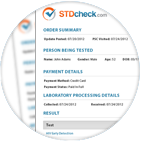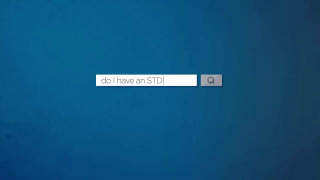Gonorrhea Test
Gonorrhea Testing Process
More information about Gonorrhea Test
Do you test blood or urine?
Our NAAT gonorrhea test is a urine test. We only need a small amount of urine to test for gonorrhea.- Sample Collection: A urine sample is taken.
- Extraction of DNA
- Amplification of Target DNA: The target DNA is amplified using a process called polymerase chain reaction (PCR). This creates many copies of the target DNA, making it easier to detect.
- Detection of Amplified DNA
- Result Interpretation: The results are interpreted based on the presence or absence of the target DNA. If the target DNA is detected, it indicates that the individual is infected with gonorrhea.
Why these tests are the best!
NAATs are highly sensitive and specific, meaning that they have a low rate of false negatives and false positives. They are also quicker than culture tests and can provide results within a few hours to a day. NAATs are considered to be the gold standard for diagnosing gonorrhea.How should I prepare for the test?
You should not urinate for at least one hour prior to arriving at the test center. No other preparation is needed.What should I expect at the examination center?
You will sign in, and a lab technician will take you to the back. You will be asked to go to the bathroom and produce a urine sample. The sample should be “first catch,” meaning the first 20 - 30 mL of urine. Women should not clean their labia before producing a urine sample.When should I test for gonorrhea?
If you’re experiencing symptoms, get tested immediately! Gonorrhea may show up on tests as soon as 2 – 6 days after exposure. However, everyone is different, and it’s common to not experience symptoms, so it is highly recommended to test after every potential exposure. To ensure more accurate results, our doctors recommend waiting 2 weeks after potential exposure to get tested.What will the gonorrhea test results look like?
Our gonorrhea results will indicate that you are either “positive” or “negative” for the bacteria. If you receive results that say “positive” or “detected,” that means you have an active gonorrhea infection. If the results say “negative” or “not detected,” that means that the bacteria was not found in your urine and therefore you do not have an active gonorrhea infection.Can gonorrhea be cured?
Gonorrhea is curable and can be treated with antibiotics. If you test positive, our doctors can prescribe antibiotics after a phone consultation. Be sure to finish the entire round of antibiotics and abstain from any sexual activity for at least one week after finishing the antibiotics. It is also recommended to get retested after the prescribed treatment is complete to ensure that the infection no longer remains. Keep in mind that it is possible to become reinfected with gonorrhea after receiving treatment.Do I need a gonorrhea test?
Yes, once you are sexually active, you need to get tested for gonorrhea. If you’re experiencing symptoms, get tested now! If you’re worried but not experiencing symptoms, wait 2 weeks after potential exposure. Untreated gonorrhea can cause severe and permanent health problems.
Should I Test for Other STDs?
Chlamydia and gonorrhea are “co-existing infections,” meaning that having one infection puts you at high risk of having the other, so we recommend that you check out our chlamydia and gonorrhea test panel.
If you are not aware of your sexual status regarding other STDs, including Chlamydia, Syphilis, HIV-1, HIV-2, Hepatitis A, Hepatitis B, Hepatitis C, HSV 1 and HSV 2, Mycoplasma Genitalium, or Trichomoniasis, then our doctors strongly recommend the 13 Test Panel, which tests for the most common STDs.
It's important to note that some people with gonorrhea may not show any symptoms, so getting tested regularly is the best way to prevent the spread of the infection. It's also possible to have multiple infections at the same time, so it's recommended to be tested for other sexually transmitted infections (STIs) as well.
If you have any questions about the test, please call our Care Advisors at 1-800-456-2323.
Medically Reviewed by Colleen Ryan, MD on January 20, 2023
STD testing is easy with our 13 Test Panel
Our Service Includes:

Same labs trusted by physicians and hospitals in your area

Sent to your email as soon as they are available

If your test result is positive, you can speak with one of our doctors

Our trained Care Advisors are available over the phone or online to answer your questions

With our 4500 testing centers nationwide, your sample collection is easy and convenient

If you need treatment, our doctors can prescribe medication, at their discretion, for pick-up at your local pharmacy
What happens if you test positive for Gonorrhea?
If you test positive for Gonorrhea, our doctors are available for a phone consultation. They will answer any questions you might have about your test results, discuss available treatments and prescribe medications for your Gonorrhea infection at their discretion. You can also call or chat live with our Care Advisors 24/7.
We are here for you. Call us at 1-800-456-2323









